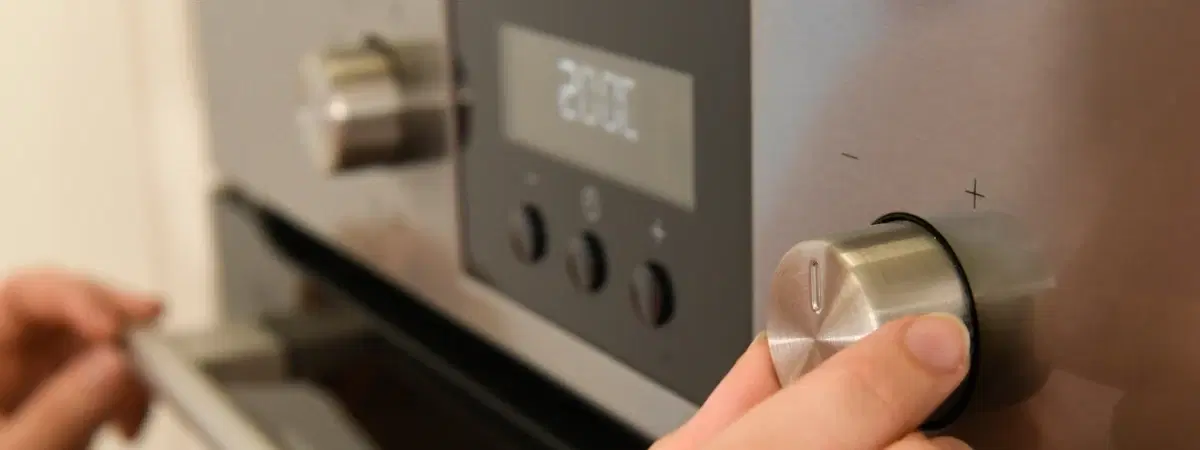
Home Appliances
•04 min read
Microwaving has become a daily ritual for many, but not all dishes are created equal when it comes to microwave safety. Among these, ceramic is one of the most debated materials. This blog explores the popular question: is ceramic microwave safe? You will learn how to determine if your ceramic cookware is safe for microwave use and gain insights into the properties of ceramic dishes that impact their performance in your microwave.
When we say a dish is microwave safe, it means that it has been tested and approved for use in microwave ovens. During testing, dishes are exposed to microwave conditions to ensure that they do not release harmful substances or break down with heat. This process is crucial for ensuring your safety in the kitchen.
Many materials are suitable for microwaving, such as glass and certain BPA-free plastics. Ceramic, when correctly made, is often included among microwave safe dishes because of its ability to withstand heat and maintain its integrity. This makes ceramic cookware safety a property worth understanding.
Ceramic is popular for its durability and aesthetic appeal, and many wonder if using ceramic in microwave is a safe option. Generally, ceramic materials are designed to handle high temperatures, which gives them an edge in microwave dish safety. The manufacturing process and heat resistance of ceramic contribute significantly to its usability in microwaves.
Despite its benefits, not all ceramics are created equal. Some ceramic cookware may not be safe due to hidden flaws such as cracks, chips, or the use of certain glazes that contain metallic elements. These issues can result in uneven heating or may even make a ceramic bowl microwave use unsafe during prolonged or high-temperature exposure.
A simple and effective method for checking if a ceramic dish is microwave safe is the water test. Fill the dish with water and microwave it for one minute. If the water heats up while the dish remains cool, it is considered safe for microwave use. This test can quickly assure you that the ceramic materials you are using meet safety standards.
Examine your ceramic items before use. Look out for visible cracks, chipped surfaces, or metallic finishes. These signs indicate that the ceramic might not be suitable for microwaving. Being vigilant about these details contributes to overall ceramic cookware safety.
Glazes add colour and beauty to ceramics but can affect microwave safety. Some glazes, particularly those that are lead-based or include metallic components, may interfere with the microwave process, causing the dish to overheat or even damage the microwave. Understanding these factors can help you decide if a ceramic dish is safe for your kitchen.
Ceramic dishes often retain heat longer than other materials. This means that even if the food inside is adequately heated, the dish may become too hot to handle immediately. Always exercise caution and consider using oven mitts when retrieving items from the microwave.
Did You Know? Testing Ceramic for Microwave Use
A quick way to check if your ceramic dish is microwave-safe is to fill it with water and microwave it for one minute. If the dish remains cool while the water heats up, it’s likely safe to use.
When selecting dishes for microwave use, always check for the microwave safe label. If you notice cracks or any form of damage, it is best to avoid using that item in your microwave. Additionally, when handling ceramic plates or mugs that have been heated, use oven mitts to protect your hands from excessive heat.
While ceramic is preferred by many for its durability and style, other materials such as glass and BPA-free plastics are also considered safe materials for microwave use. Each material offers its own advantages. For example, some households might choose ceramic for its aesthetic appeal, while others may opt for glass or plastic for their efficiency in heat management.
At Tata Neu, we understand that choosing the right kitchen appliances can be part of progressing in life by creating a smarter, more convenient daily routine. As you explore our offerings, the benefits extend further than just quality products. You can earn NeuCoins rewards on every purchase, making your smart shopping experiences even more rewarding. With us, you can shop with confidence and clarity, much like making safe choices for your home appliances.
Check for a "microwave safe" label on the dish. Alternatively, perform the water test by microwaving the dish with water for one minute. If the dish stays cool, it’s safe to use.
Glass and BPA-free plastics are generally considered the safest materials for microwaving. Ceramics are also safe if they are labelled as microwave safe.
Ceramic may not be microwave safe if it has metallic glazes, cracks, or is not designed to withstand high heat. These factors can cause uneven heating or damage the dish.
It depends on the glaze. Metallic or lead-based glazes can make a ceramic dish unsafe for microwaving. Always check for a microwave safe label.
Most ceramic mugs are microwave safe, but those with metallic decorations or untested glazes might not be. Performing the water test is a safe way to determine their suitability.
Ceramic dishes offer a blend of durability and elegance. However, not every ceramic plate is suitable for every microwave. By understanding the nuances of ceramic cookware safety and following comprehensive testing, you can enjoy the convenience of microwaving without worry. With Tata Neu, shopping for safe, high-quality home appliances also comes with great benefits such as earning NeuCoins rewards and accessing expert guidance. Embrace the ease of a seamless shopping experience, and let Tata Neu be your trusted partner in everyday progress.